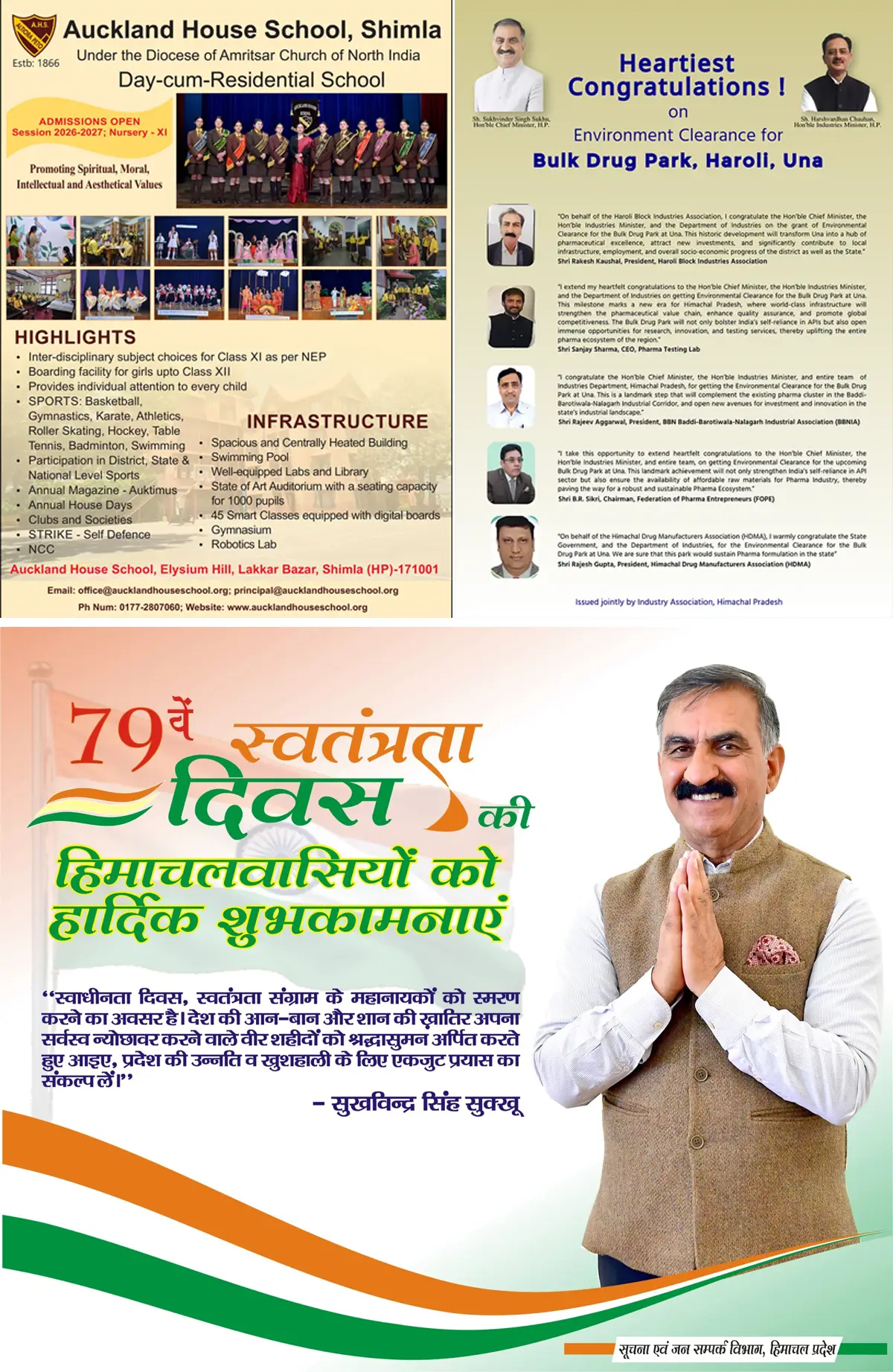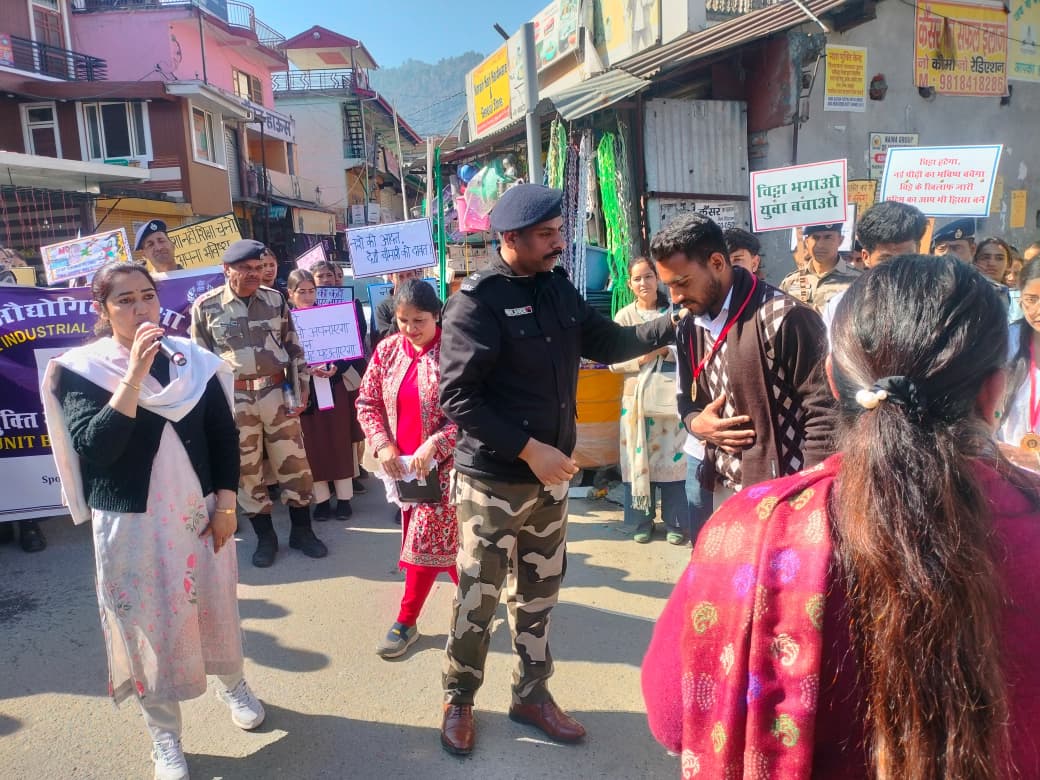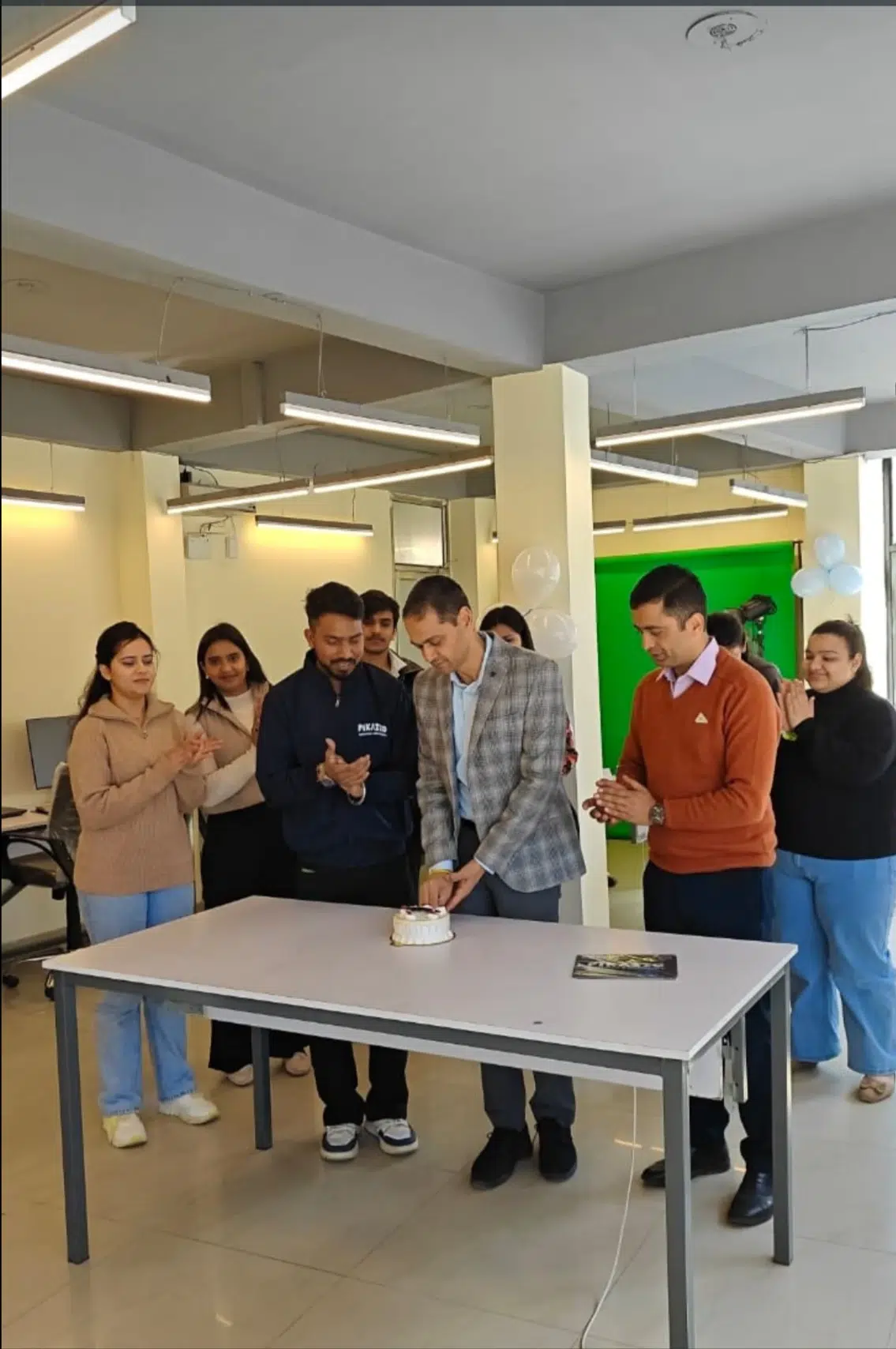Himachal Holds Workshop on Climate-Responsive Human Development Report
4 min readShimla, February 20, 2025: The Department of Environment, Science, Technology, and Climate Change (DEST&CC), Government of Himachal Pradesh, in collaboration with the United Nations Development Programme (UNDP), successfully conducted an Orientation Workshop on the Himachal Pradesh State Human Development Report (SHDR) at Hotel Holiday Home, Shimla. The workshop aimed to foster interdepartmental collaboration and thematic discussions to assess and address the impact of climate change on human development in the state.
Sh. Prabodh Saxena Chief Secretary inaugurated the workshop. In his address, Chief Secretary Shri Prabodh Saxena highlighted three major challenges faced by Himachal Pradesh: climate change, the drug menace, and the health of youth, particularly malnutrition. He emphasized the importance of green budgeting and gender budgeting as key strategies to mitigate these challenges. He urged all departments to not only draft recommendations but also ensure their implementation at the local level. He stressed the need for mass awareness, dissemination, and outreach, calling for collective efforts to translate policy discussions into action on the ground.
He said that the workshop brought together experts, policymakers, thematic working groups, and representatives from civil society to discuss the progress and future direction of the HDR. He emphasized that Himachal Pradesh, known for its fragile ecology and unique socio-economic landscape, is increasingly vulnerable to climate change. Rising temperatures, erratic monsoons, glacial retreat, and frequent disasters such as landslides and flash floods are affecting agriculture, water resources, biodiversity, health, tourism, and infrastructure. Recognizing these challenges, the state government has undertaken the preparation of an inclusive and climate-responsive HDR to guide policy action and promote sustainable development. He emphasized the urgency of addressing climate change impacts on human development. He highlighted the climate crisis affecting agriculture, water security, biodiversity, and livelihoods and the need for sustainable policies, climate finance mechanisms, and resilient infrastructure.
He said that the HDR will integrate climate adaptation, risk reduction, and inclusive growth strategies to guide policy actions. Thematic groups presented their progress, identified challenges, and discussed future roadmaps. The government reaffirmed its commitment to a data-driven, equity-focused, and climate-resilient development approach for Himachal Pradesh.
Sh. D.C. Rana, Director EST & CC, Disaster Management said that in order to ensure a holistic and evidence-based approach, GoHP has constituted a State Steering Committee to oversee the preparation of the HDR. In addition, Thematic Working Groups (TWGs) have been formed to address key sectors, including: Climate Resilience and Environmental Sustainability, Health and Well-being, Education and Skills Development, Livelihoods and Economic Growth, Social Inclusion and Gender Equality, Infrastructure and Urban Development.
The technical sessions included thematic working groups focusing on key sectors such as Health, Agriculture & Allied Sectors, Tourism, Construction, and Governance. Participants engaged in detailed group discussions and presented their insights, recommendations, and PowerPoint presentations in the second half of the workshop. The deliberations were instrumental in identifying key climate-related vulnerabilities, policy gaps, and strategies to promote climate-resilient development in the state.
These groups are tasked with conducting sectoral assessments, analyzing challenges, and proposing solutions that align with Sustainable Development Goals (SDGs), India’s climate commitments, and the state’s long-term development vision.
The workshop, technically supported by UNDP, marks a significant step in shaping the Himachal Pradesh State Human Development Report. The recommendations and outcomes from the workshop will contribute to evidence-based policymaking and enhance the state’s preparedness for addressing climate change impacts.
The Chief Economist UNDP Ms. Amee Mishra, said that the workshop served as a platform for all thematic groups to present their progress, exchange ideas, and strategize future actions. She said that Key objectives of the workshop included:
Reviewing sectoral progress and identifying data gaps in human development, including missing or inconsistent climate impact assessments.
Strengthening climate-resilient policies and financing mechanisms.
Enhancing multi-sectoral collaboration among government, academia, civil society, and the private sector.
Exploring innovative financing options such as green bonds, climate adaptation funds, sovereign sustainability-linked bonds, blended finance mechanisms, and public-private partnerships.
It was resolved that the HDR preparation must address key challenges, including:
Integrating climate resilience into all aspects of development planning.
Bridging data gaps for evidence-based policymaking, particularly in high-risk areas such as agriculture and water conservation.
Enhancing community participation to ensure inclusive growth.
Mobilizing green finance for sustainable development initiatives by leveraging international climate funds such as the Green Climate Fund (GCF), Global Environment Facility (GEF), and bilateral/multilateral cooperation.
Strengthening climate governance by institutionalizing climate risk assessments and embedding climate budgeting across government departments.
Developing regional climate adaptation strategies, including nature-based solutions and ecosystem restoration programs to counteract the impacts of climate variability.
The HDR will serve as a blueprint for policy recommendations to achieve sustainable human development in Himachal Pradesh. The government reaffirmed its commitment to balancing economic progress with environmental stewardship, ensuring that development remains inclusive, resilient, and climate-responsive.
The workshop concluded with a strong call for collective action, urging stakeholders to contribute to shaping a transformative HDR that will guide Himachal Pradesh toward a sustainable future. The TWGs targets for first draft of SDR to be ready by end of April, 2025.






